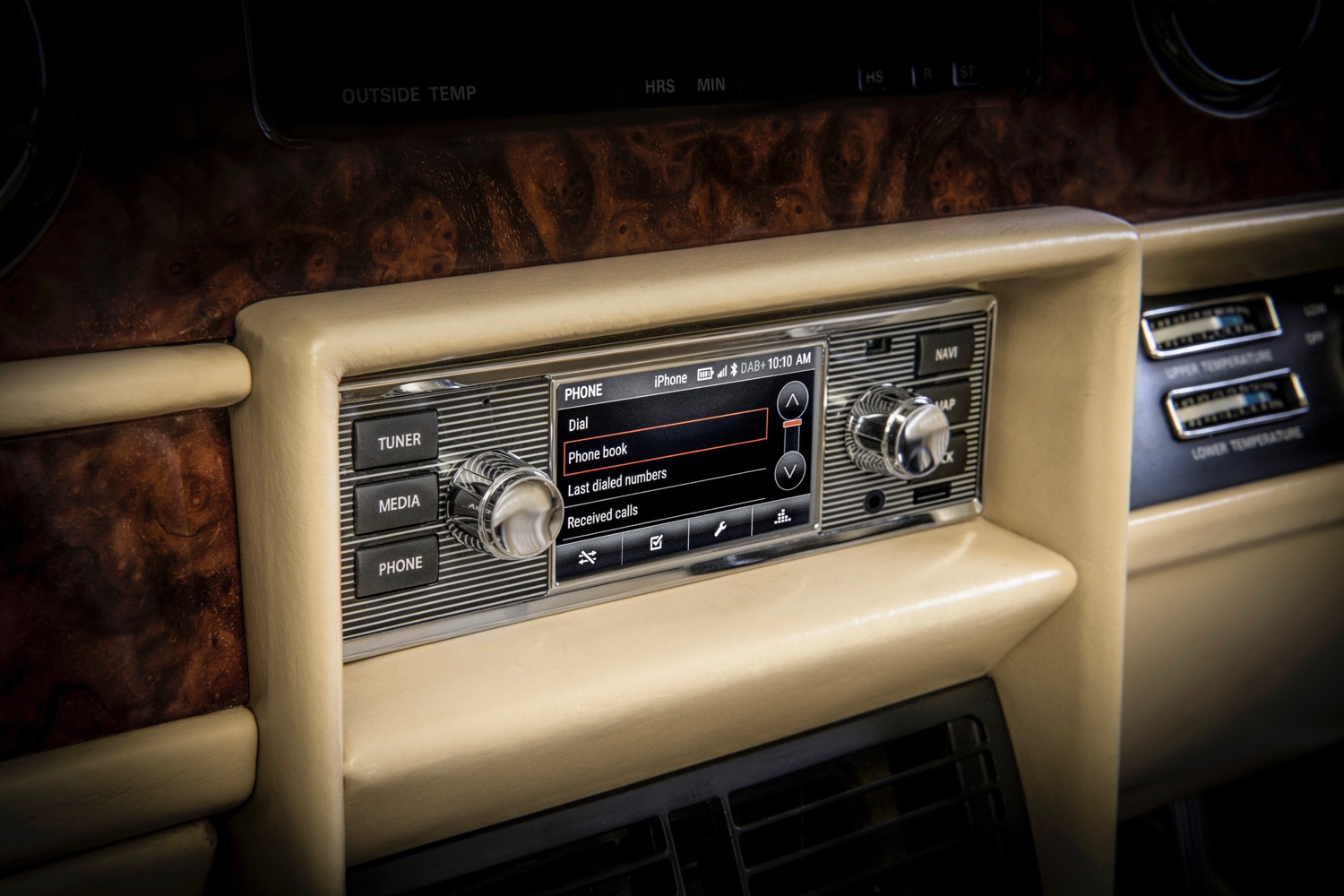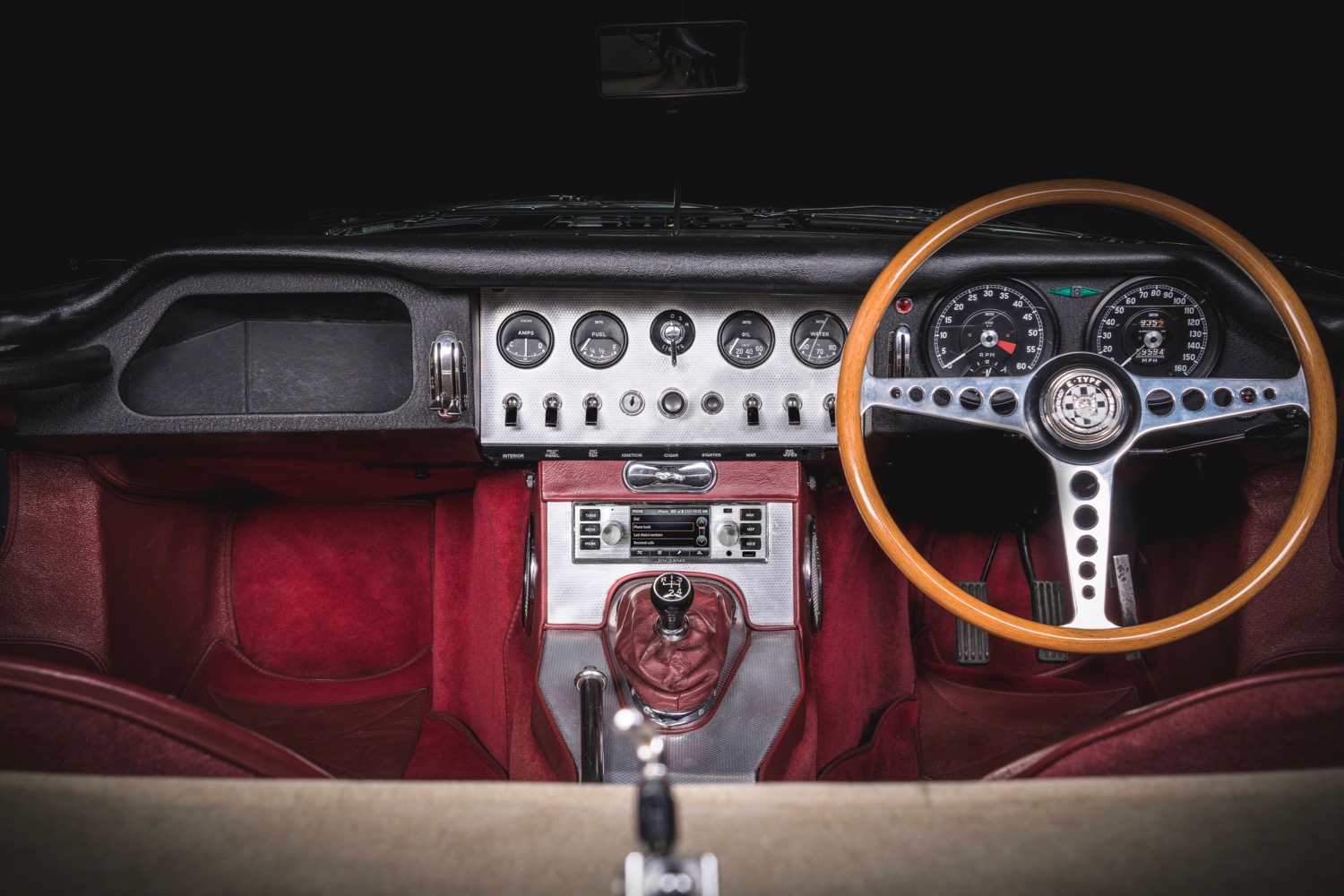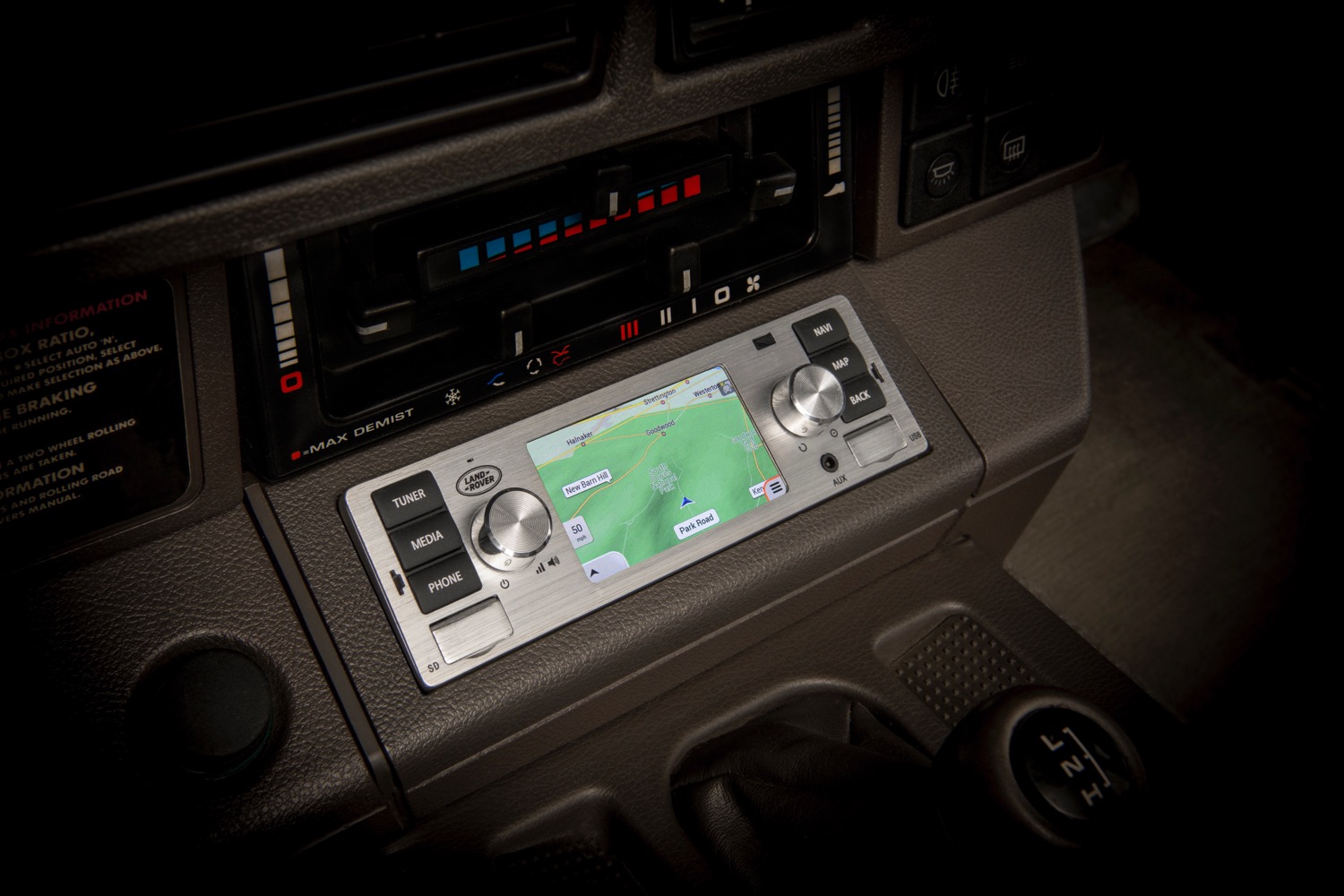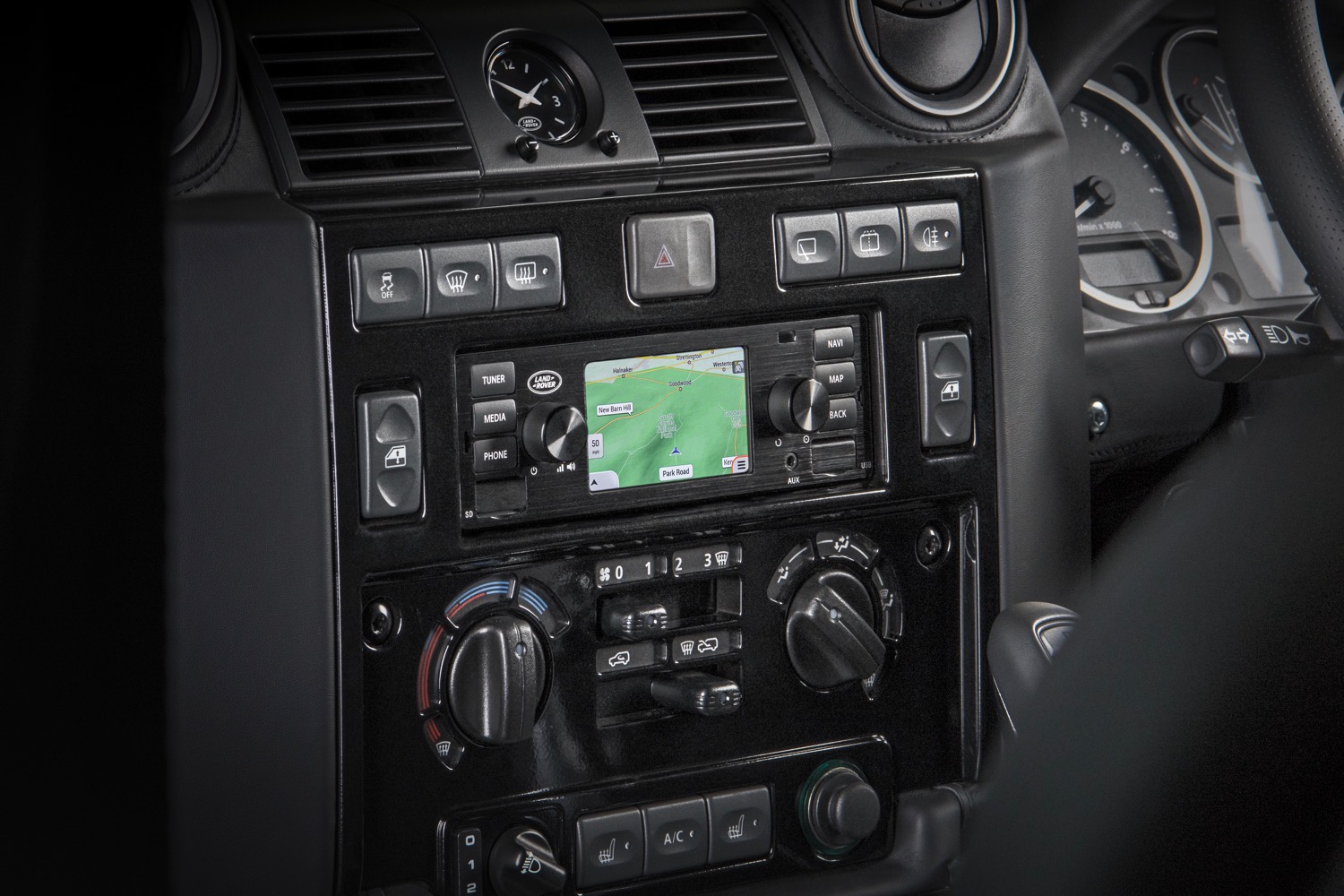If you can’t take a trip down memory lane without bringing a touchscreen along, Jaguar Land Rover (JLR) has a solution. The British automaker is offering modern infotainment systems that can be retrofitted to classic cars, something already offered by rival Porsche. So you can get Bluetooth in a car that predates the invention of cell phones.
In addition to Bluetooth, Jaguar Land Rover’s Classic Infotainment Systems include navigation (with 2D or 3D maps), digital radio, and FM and AM analog reception. However, there’s no mention of satellite radio, which is included with Porsche’s system. JLR claims higher-quality sound from the 4 x 45-watt output of the single DIN-sized head unit, but that probably won’t make much difference if the sound is piped through stock speakers.
Everything is controlled from a 3.5-inch touchscreen and a set of analog buttons and knobs. The systems are compatible with cars using older negative-earth electronics. Multiple designs of head unit are available, with retro styling to help them blend in with the dashboards of older cars. Choices include black or chrome finishes for Jaguars, and black or brushed aluminum for Land Rovers.
These head units could offer the best of both worlds for classic-car owners who want a vintage experience, but don’t want to go back to using paper maps. On the other hand, one of the nice things about driving an old car is not having to deal with the modern distractions of being constantly connected.
The systems retail for 1,200 pounds ($1,563) in the U.K., but JLR hasn’t released U.S.-specific pricing. Head units can be ordered online, and certain JLR dealers can perform the installation if desired. The systems can also be added to cars as part of restorations performed at JLR’s U.K. Classic Works.
Modern infotainment systems aren’t the only new tech JLR is installing in vintage cars. The automaker will also offer electric powertrain conversions for the Jaguar E-Type, arguably one of the greatest sports cars in history. A battery pack sits where a stock E-Type’s engine would normally reside. JLR is currently taking reservations from customers for the conversions, which the automaker claims are fully reversible.
Editors' Recommendations
- Modern cars take touch controls too far. This company found a balance
- The best infotainment systems
- Polestar and Google plan a smartphone-like infotainment system
- Infiniti’s latest InTouch system finally adds Apple CarPlay and Android Auto
- Hyundai cracks off two new land speed records in fuel cell, hybrid cars






